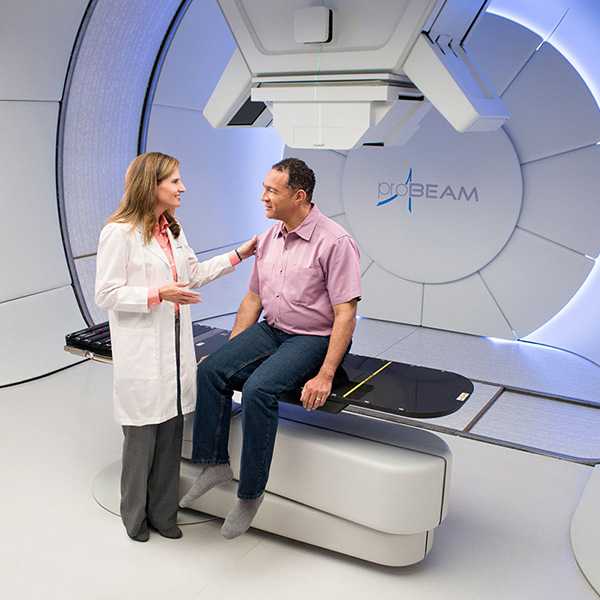What is proton therapy?
Proton therapy, or proton beam therapy, is a form of external beam radiation treatment that uses protons rather than electrons or X-rays to treat certain types of cancer and other diseases. It is often a preferred type of therapy because it allows the radiation oncologist to more effectively reduce the radiation dose to nearby healthy tissue. Proton therapy has been used to treat cancer for more than 50 years, and it is effective for many types of cancers. Proton therapy may be combined with other forms of treatment including chemotherapy, immunotherapy, and surgery.


